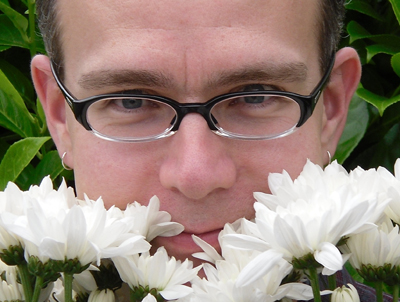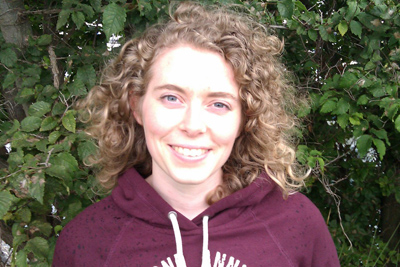Interviews
What is Spoken and What is Unspoken:
Heike Lettrari in Conversation with Zoey Peterson

Zoey Peterson talks with Malahat volunteer Heike Lettrari about "Next Year, For Sure" (#176, Fall 2011), winner of the 2011 Malahat Review Far Horizons Award for Short Fiction.
Congratulations on winning the Far Horizons fiction contest! I think Gerard Beirne nailed it when he said, “The future of the relationship explored in this story is far from certain.” We seem to wallow in the unresolved circumstance of uncertainty – Chris and Kathryn bike to camp and kayak on their own, in the absence of the couple whose company they enjoyed in the past and long for. How much did you mean for the uncertainty to feed what seems to be a relatively long-standing relationship? Is this a thought from personal experience?
Oh dear, I assumed we were all living with uncertainty most of the time. I’d hate to think it’s just me.
But yes, I’m interested in uncertainty, and particularly the uncertainty that comes with being interconnected with other people—those mystifying, inscrutable creatures with their confounded inner lives and their unreadable brains.
I completely appreciate and was pleasantly surprised by Chris’s steadfast and honest disclosure, up to the eventual and casual realization that “It is time to stop talking about Emily.” It’s said that good communication makes a relationship, but in this case, seems tentatively to build towards breaking this one, especially as Chris reveals to Kathryn his infatuation with Emily. There are no absolutes for the myriad complexities of relationships, are there?
It’s definitely a bind. You’re right, Chris is doing everything in his power to be honest and open. If I could sit him down and offer him one piece of advice, it would be this: Honest communication doesn’t have to mean unfiltered communication. I don’t know how ready he is to hear that.
The strong, clear clip of the narratorial voice leads us through the story. That first paragraph drew me in and spat me out with the use of second person, and works well to establish an intimacy through point of view. Did this piece start that way, or did you revise, revise, and find that’s what worked?
This story germinated for a long time before I started writing it—probably a year or more. During that time, I wasn’t making notes or outlining, I was just ruminating on the plight of the characters. I wasn’t even sure I would write the story, but I was very concerned about the characters and how they would deal with their situation, and I would worry about them while I washing dishes or riding the bus.
Then one day, that first paragraph just came to me, fully formed. I think I was cleaning my apartment. That’s when I started actually writing the story. I’d found a way in to the story. Of course, the rest of it didn’t come so easily. It had to be pried out, painfully, one word at a time.
That’s often the case with my writing. The body of the story is the product of brutal excavation and revision, but the opening lines just present themselves and often remain intact from the very first draft.
I felt bird-perched on Chris’s shoulder through the telling of this story, and the lack of dialogue tags also contributed to a calm invitation into Chris’s perspective. What felt right to you about dropping the tags? What difference did this typographical, stylistic choice make for you?
At first, it was simply aesthetic. Quotations marks bug me a little, visually. And I’m sure I was influenced by Grace Paley, who often omits quotation marks to exhilarating effect. In any case, it just felt good to leave them out.
In later drafts, I did go back and try inserting quotation marks, because writing without them is actually a lot harder. It takes a lot of extra fussing to get the transitions to read right, and a couple of tricky spots were driving me to despair. When I tried adding quotation marks, though, they really altered the feeling of the piece.
If I had to justify it artistically, I’d say that quotation marks are quite literally a boundary between what is spoken and what is unspoken. Everything the character says goes neatly inside, and all the things they think, feel, perceive, or otherwise express stays outside. With Chris and Kathryn, though, it seems like the line between what is said and what goes unsaid has become somewhat permeable. They seem to have access to each other’s inner thoughts at certain times and then talk past each other at other times. So I’d like to think the absence of quotation marks somehow reflects that fluidity.
Let’s talk briefly about the ending of the story. Chris and Kathryn “… turn back, unsure of how far they’ve gone. They take turns paddling, and sometimes let themselves float along.” I felt like a fishing lure bobber, stuck-in-spot yet waiting, floating right beside them. Can you talk about that open end?
I will say it isn’t the ending I originally intended. I had a couple more scenes planned and a different kind of ending in mind, but as soon as I wrote that line, the story kind of reared up and said, “Stop.” The story really wanted to end right there. And I’ve come to agree.
The thing is, I still think there’s more story to tell. So I’ve been writing other stories about Kathryn and Emily, and what happens next. I think it might be turning into a novel.
What does winning the Far Horizons Award for Fiction mean to you? How does this award impact your outlook on your future writing?
It definitely has prompted a shift in my outlook. I’m a grad student right now—studying to be a librarian—and I absolutely love it, but it means I only get to write during the summers when school is out.
In light of this award, though, I’ve been thinking I might scale back my course load slightly so that I don’t have to put my writing on a shelf for eight months out of every year. Even getting to write one hour a day would feel huge.
I know you donated your prize money to the Transgender Law Center. Could you talk about why that was important to you?
What appeals most to me about a contest like this is the blind judging. The judge has no information about the author, so they must approach each story with absolutely no preconceptions. It’s still very subjective, of course, and I’m sure some wonderful stories go unrecognized. But when you as a writer put your little work of art in the mail, you know it’s not going to be denied a fair chance just because of what your body looks like or how you express your gender.
Unfortunately, this is often not the case for transgender people. When interviewing for a job, when applying for an apartment, visibly gender-variant people are routinely discriminated against and denied an opportunity to be judged on their merits. It’s insidious and difficult to fight, but the stakes are enormous. It forces people into poverty and homelessness.
The Transgender Law Center provides free legal services for transgender people who are experiencing this kind of discrimination and advocates for laws that ensure everyone has equal opportunity and protection, regardless of their gender expression. I can’t say enough good things about them.
What projects do you have on the go right now?
I’ve spent most of this summer working on the stories that come after this story—the may-be-novel. It’s grindingly slow, but I think I know where it’s going and I’m excited.
I’ve also been writing some weird little micro-fiction pieces, which are quite unlike this story. I have one coming out in the winter issue of Grain, for anyone who is interested. It’s called “Two Monsters.”
Writers are who they read. What books have been on your summer reading list, and which authors have inspired you in a big way? Any must-read recommendations?
Grace Paley’s story “Wants” was a touchstone for me while I was writing this story. I’d wake up every morning and read it at least once before I started my own writing. Also, Sarah Van Arsdale’s novel Toward Amnesia and Linda Svendsen’s story cycle Marine Life were unexpectedly influential on this story. Both are books that I read years and years ago, but I found them looming up in my consciousness as I was writing this story.
This summer, I’ve been reading everything I can find by Sarah Shun-lien Bynum, who might be my new hero. I also really admired How Should a Person Be? by Shelia Heti. I wasn’t even halfway through when I started to look forward to reading it again. Isn’t that the kind of book we all want to write?
* * * * * * * * *

Heike Lettrari
The Far Horizons Award for Short Fiction runs in odd years, alternating with the Far Horizons Award for Poetry (which runs even years). The next deadline for our Far Horizons Award for Short Fiction is May 1, 2013.
Find out more about the Transgender Law Center work.









